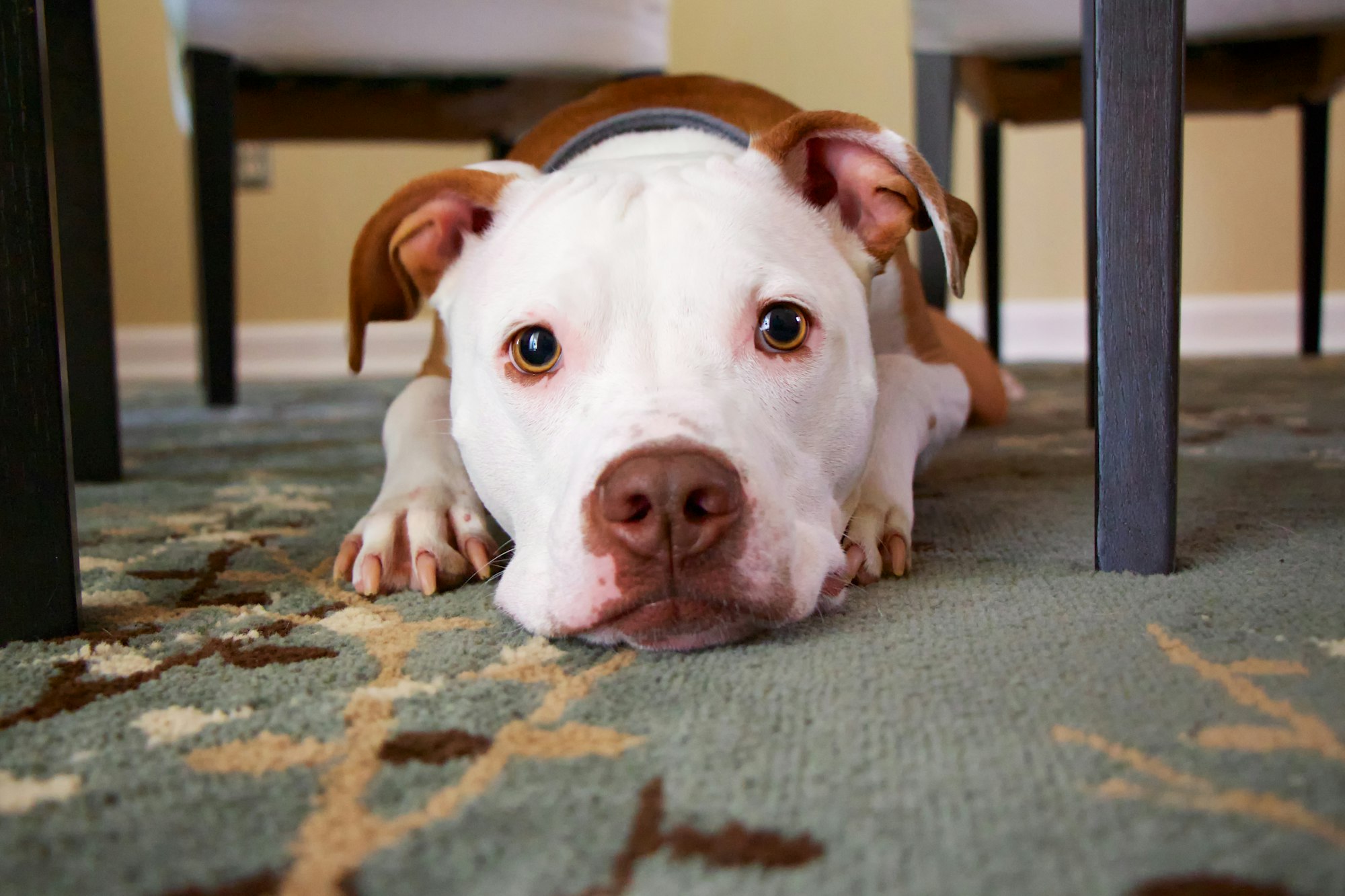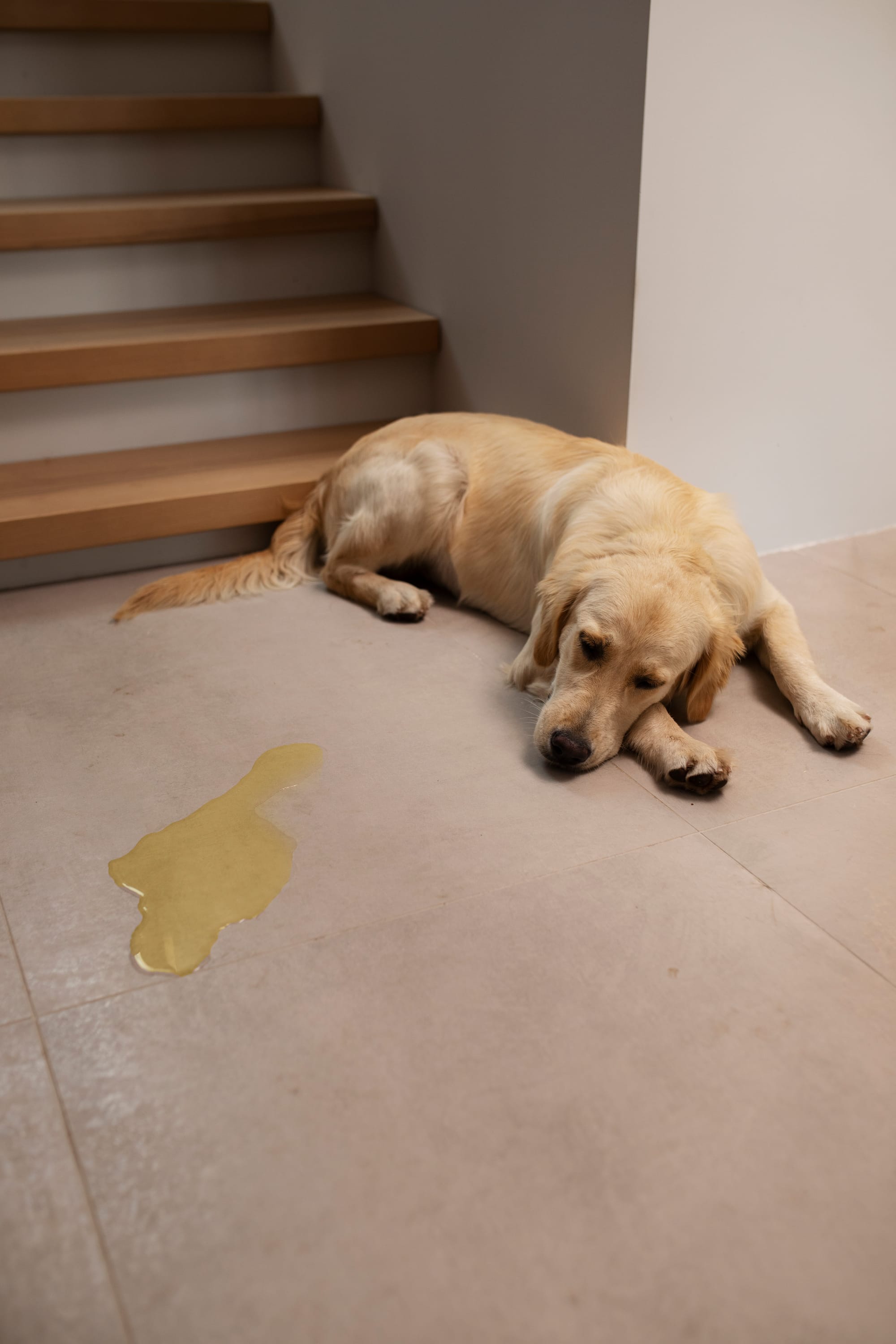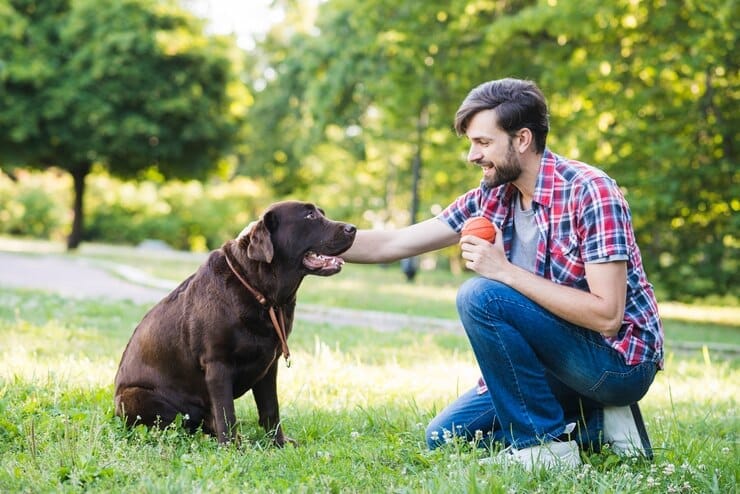As responsible pet guardians, one burning question that we always seem to have is, "How long can a dog stop peeing?" This query is especially important to consider with your long work schedule in the pipeline or during such times when you are trying to work out when is the right moment to take your dog for a toilet break.

Although there is some difference in the duration in which other canines are able to contain their bladders, age, size, diet, health, and even breed are factors that influence how long your puppy can go without relieving themselves. In this article, we will discuss how long dogs are able to hold their pee, what happens in case they are made to keep it in for too long and what would be the most common ways to maintain optimal urine health of your dog.
General Guidelines: For How Long Can Dogs Go Without Urinating?
As much as dogs can hold their bladder, it is usually determined by their age and condition. Here's a quick breakdown:
- Puppies: 1 hour for every month of age; for example, a three-month-old puppy can only hold it for about 3 hours
- Adult Dogs: Up to 6-8 hours
- Senior Dogs: 4 to 6 hours, though health issues can influence this
It is important to note that these are only averages. Every dog is different, and numerous factors determine how long a dog can hold its bladder. Let's go into more detail about the puppies and adult dogs and their characteristics in terms of how long they can have their pee.
How Long Can Puppies Hold Their Pee?
Young Puppies (0-6 months)
Bladders of swiftly advancing puppies, especially those not over six months old, have very small bladders and even worse bladder control. Ordinarily, from month, a puppy can hold its bladder for 1 hour per month; hence, a monthly puppy should have to go outside after about 3 hours.
At this point, bladder control is still maturing and it is natural for puppies to wet the bed, more so when excited and stressed. The most important thing when it comes to successful potty training during this stage is ensuring the dogs go outside to defecate very often.
Older Puppies (6-12 months)
Most pups tend to have more control of their bladder functions by the time the puppy is six months old. At that point, they should be able to retain their pee for one to four to even six hours. However, they will only be able to sit with a bathroom break for a full eight bathroom-free hours concerning their physical activity, drinking, and eating habits throughout the day.
Tips on Potty Training Puppies:
- Take them outside frequently– at least after every 1-2 hrs for the younger puppies.
- Reward them every time they pee outside with treats or praise so as to reinforce this behavior positively.
- Go outside after meals, naps, and playtime and get them to pee outside as part of creating a pattern.
- Do not scold them for the messes, but praise them for their efforts in training.

How Long Can Adult Dogs Hold Their Pee?
Healthy Adult Dogs and their owners (aged 1-7 years)
When your furry friend transitions into adulthood, there is an increase in the bladder size. On average, a healthy adult dog can hold their race during the day up to 6 and 8 hours. However, this does not mean that they are supposed to hold it for long periods on most days.
Ample time spent without reliving oneself may cause discomfort as well as health problems with time. More appropriately, adult pets should be availed outdoor relieving opportunities in 4 to 6 hours intervals to ensure good urinary practices and in order to avoid accidents.
Factors Affecting Bladder Capacity in Adult Dogs:
- Size and Breed: Tiny dog breeds will have everybody's favorite bladder size limitations, too. Such small dogs like choke and sausage dogs are going to need regular bathrooms with shorter intervals than bigger dogs such as labradors and great dances.
- Diet and Water Intake: The more the water intake by your dog the more the bathroom breaks. This also affects their feeds; it is noticed that dogs on wet food (which has a lot of moisture) might want to visit the restroom more often than their dry kibble-feeding counterparts.
- Activity Level: A well-exercised dog would have a higher intake of water and would also need to relieve himself more often. A dog running around the yard or going on frequent walks would require more bathroom breaks than a dog curled up on the couch for the greater part of the day.
- Health: However, some dogs may want to urinate more because of other causes such as diseases, lack of mobility, diabetes urinary tract infections amongst different causes. If you notice that there is something out of the ordinary when it comes to how your dog urinates, then it is best to see the veterinarian.

How Long Can Senior Dogs Hold Their Pee?
Senior Dogs (7+ years)
Let's face it, just like in the case of humans, the ability to hold pee gets worse with age in dogs. Most people are surprised when their senior dog's bladder, as energetic as it looks, can only last for about 4 to 6 hours, depending on health status and physical condition.
Most older dogs will also tend to have issues such as bladder incontinence, arthritis, or kidney-related problems that make it hard to control the bladder or get to the washroom on time. So, as they approach their advanced ages, you should expect that your senior dog will go out quite often, or you will have to change your schedule here and there.
Signs Your Senior Dog Needs More Frequent Bathroom Breaks:
- Increased accidents in the house
- Asking to go out more often or pacing by the door
- Drinking more water than usual
- Showing signs of discomfort or restlessness
If you observe any of these signs, then a visit to the vet is advised such as an x-ray, to find out quickly whether there is anything inside, such as bone fragments, or whether it is swollen due to some infection.

Are There Health Risks Associated With Dog's Pee Holding?
Although dogs can physiologically restrain themselves from urinating for a certain length of time, routinely making them do so may adversely affect their health. Here/or below is the reason why it is in everybody's interest to make sure that the pet dog is provided with bathroom breaks at frequent intervals:
1. Bladder Infections
One of the effects that urine retention has on a patient's health is the ability of the urine in the bladder to enhance the growth of bacteria and, therefore, cause urinary tract infections. UTIs are very painful and can even induce frequent urination with blood and pain while urinating. It is so because if the infection is ignored or not treated, a person may develop kidney infections which are much more serious.
2. Bladder Stones
Retention of urine for quite a long can make one develop bladder stones. Bladder stones are hard mineral malignancies that can block completely the urinary system and cause very severe pain and discomfort and even life-threatening conditions with appropriate medical attention not sought.
3. Incontinence
Holding pee for long hours is likely to result in bladder muscle weakening over time resulting in urinary incontinence in dogs. Leakage of urine and accidents were some of the manifestations of this condition in dogs especially with aging.
4. Behavioral Changes
One of the common reasons for urine retention is when a dog has to hold it for more than a reasonable period. Such dogs can become anxious, stressed, nervous, etc. Due to this, many dogs tend to act out-excessive. Barking is one good example, restlessness, or even destructiveness just so that they can relieve themselves.
5. Discomfort and Pain
Any pet owner knows that there comes a time when dogs will need to relieve themselves. In some instances, one may encounter a situation where dogs have been locked up for too long, and as a result, they have potty-welcomed discomfort and, in some instances, pain too!

Maintaining Your Dog's Elimination Schedule in a Healthy Way
Providing your dog with reasonable bathroom breaks is very important when it comes to their well-being. To ease the pressure of having to worry about your dog's bathroom, you may follow these tips:
Create a Schedule
Like humans, dogs also have abilities to follow set times and dates to perform activities such as going to the bathroom. This is why you should establish specific times in a day when your dog will go on walks so as to avoid accidents in the house. The first thing when waking up, after every meal, and the last one before bedtime, a dog has to be taken out. For example, if you're home, offer this approximately every four to six hours, even if the dog appears not to require one.
Get a Dog Walker
For those who are gone most of the time or work long hours, it makes sense to employ a dog walking service, which may assist you in the way of a dog bathroom break around the middle of the day. This is even more critical for puppies, elderly dogs, and dogs with health conditions.
Consider Using Alternative Potty Systems
This especially works best for those whose occupation may require them to go to work, and therefore, you cannot go out with your dog's pathetic pads actively throughout weeping and for certain dogs and home pet grass pads. However, these alternatives should not take the place of walks but are an excellent place to start for dogs who need bathroom breaks more often than normal.
Monitor Water Intake
Though your dog should always have fresh, clean drinking water available to them, consider how much they are consuming at any given time, especially before sleeping and before taking them for long car rides. Limiting their water intake can help eliminate the need to go out frequently.
While out, dogs usually indicate the need to relieve themselves with certain signals. Such signals can be pacing, whining, sniffing the door, and even going around in circles. Look out for these actions as they may save you a lot in preventing soiling accidents for your dog.

Understanding how long your dog can withstand the urge to urinate is the crux for your dog's health and well-being. Since most dogs are able to contain themselves for a few hours physically, it is wise to keep offering them toilet breaks, or else the worrisome UTIs, bladder stones, and problems of incontinence will kick in. Every dog has its own needs that correspond to its age, size, and health; providing such an understanding together with other factors helps in formulating a schedule that will ensure their comfort as well as the condition of their bladder.

